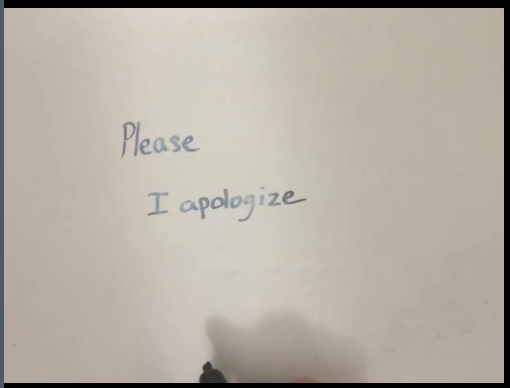Bright arrogance #1

“Please forgive me.” These words appear in the beginning of Jonathan Stalling’s Yíngēlìshī—an experimental “transgraphic” work written in what he calls “Sinophonic English,” which strains the parameters of what we call “translation.” Stalling’s work evinces a deep knowledge of and sensitivity towards Chinese language, philosophy, and culture; yet, he plays with misrecognitions and mishearings that emerge in the heterocultural space of mistranslation. In his book The Poetics of Emptiness, he even expresses a deep appreciation for Ezra Pound, bête noire of Sinologists, whose appropriation of the Chinese ideogram (via Ernest Fenollosa), while based on some fundamental misunderstandings of Chinese language, provided a basis for the imagistic poetics of Western modernism. If these cross-cultural misrecognitions can be so productive, and indeed if they form the source of Stalling’s own work as he bends the unauthorized sonic territories between languages—in order, as he says to “mock a metaphysics of equivalency”—why start with apologies?[1]
“The translator must fight . . . against the desire to be innocent,” according to Derrida. Yet while traditional translators readily recognize the impossibility of remaining noiseless relays in their tasks, they are not required to apologize, or perform any other sort of admission, other than a generalized cultural one, that their work mutates the original as a matter of fact. It is, however, the “experimenter”—one who plays more fast and free with the original—who must announce the presumed harm s/he is doing, exuberantly or penitently. A number of terms have emerged to mark this growing practice of non-innocent translation, almost as if to signal that the artist-translator is presenting damaged or admittedly fraudulent goods: dystranslation, transmutilation, translucinación, transcreation, translanation, trans-elation, transluciferation—in addition to “conceptual,” “experimental” and “new” translation—have all been proffered by various poets to distinguish their work from translation that is still based, like the similarly dubious promises of digital replication, on a 1:1 correspondence.[2] And while the digital world of online text and textual translation has allowed these mutational practices to proliferate (and perhaps enables them to become the global condition of language transfer for our times), this need to situate the boundaries between a “true” and “false,” translation is not new, although it becomes much harder to maintain in a world of Siri, Google translate, and global “Netlish.”[3]
Given that we are in the midst of remix culture, where appropriative transformation of source texts is the order of the day, why apologize for playing with hallowed originals, especially of long dead, non-royalty collecting authors? Why not play with the transmissional noise inherent in the act of translating a text, especially if our computers allow for a kind of research into these textual transformations that is historically unprecedented? Indeed, there is a kind of deformational translation that arguably may carry with it imperial pretensions. But you’ll get more complaints if you’ve confused the consumer, if you’ve goofed the armchair imperialist who mistakes your translation for a more or less direct version. As I write, Brandon Brown’s marvelous Catullus—which returned me to the shapes of the original even as it detourned me from a clear, dutiful communication of it—has a single one-star rating on Amazon.com: “UGH: I expected a translation from Latin. This is a rewrite of the poems, not nearly as good. Ultimately, just vulgar.” All odi, no amo.
Brandon Brown’s translation of the 31st poem of Catullus reads as an explanation for why he is not apologizing, even though his sullying of Catullus invites such trashings of what amounts to his literary Yelp rating, “I choose to not. And I don’t feel bad about it either. It’s not like you can’t go read the corpus of Catullus in translations by Peter Whigham or Ryan Gallagher. Or Bernadette Mayer or Louis Zukofsky. And those translations are terrific. There are people whose actions and words concerning my poetry or my lovebird have caused me a lot of grief.”
This might in the end be a question of cultural capital, or the ghost of Sonny Bono and Mickey Mouse dancing with Rimbaud and a complacent literary establishment. But we hope that the cabal is not that disturbing, and that as we explore these experiments in the coming posts, cries of traitor! cheater! poacher! hack! will be kept to a minimum. We will, in the end, proceed without apologies.
~NEXT WEEK: THE TRADUTTOREADOR TRADITION!~
1. This column will perhaps hyperextend the propriety of the blog format, while still not erring on the side of the bookish. Accordingly, the citational structure will be as light but as accurate as possible, with full bibliographic information given in a separate later post. The title of the column, “Bright Arrogance” is taken from legendary translator Willis Barnstone's description of Edward FitzGerald's Rubáiyát of Omar Khayyámin The Poetics of Translation. Special thanks to the Royalty Research Fund of the University of Washington, and a Wave Farm AirTime Residency, for support of my extended research into experimental translation; this column is a partial fulfillment of the aims of those two grants.
2. Other languages might have some solutions to this linguistic impasse. See, for example, Bassnett and Trivedi's discussion of the sanskrit anuvad in Postcolonial Translation: Theory and Practice, or the remarkable catalogue of terms available to the Japanese, as described by Michael Emmerich.
3. Of the older ways to designate artistic liberties taken by the translator, there is the idea of what Robert Lowell (perhaps influenced by Dryden and Schleiermacher’s theories of translation) called an “imitation.” There is the modest tradition of saying that a poem is “after” another author, although Spicer’s more “cheeky” implications of his After Lorca seem to target this tradition, perhaps in an attempt to overturn how we think of the very nature of tradition and influence.
Bright arrogance